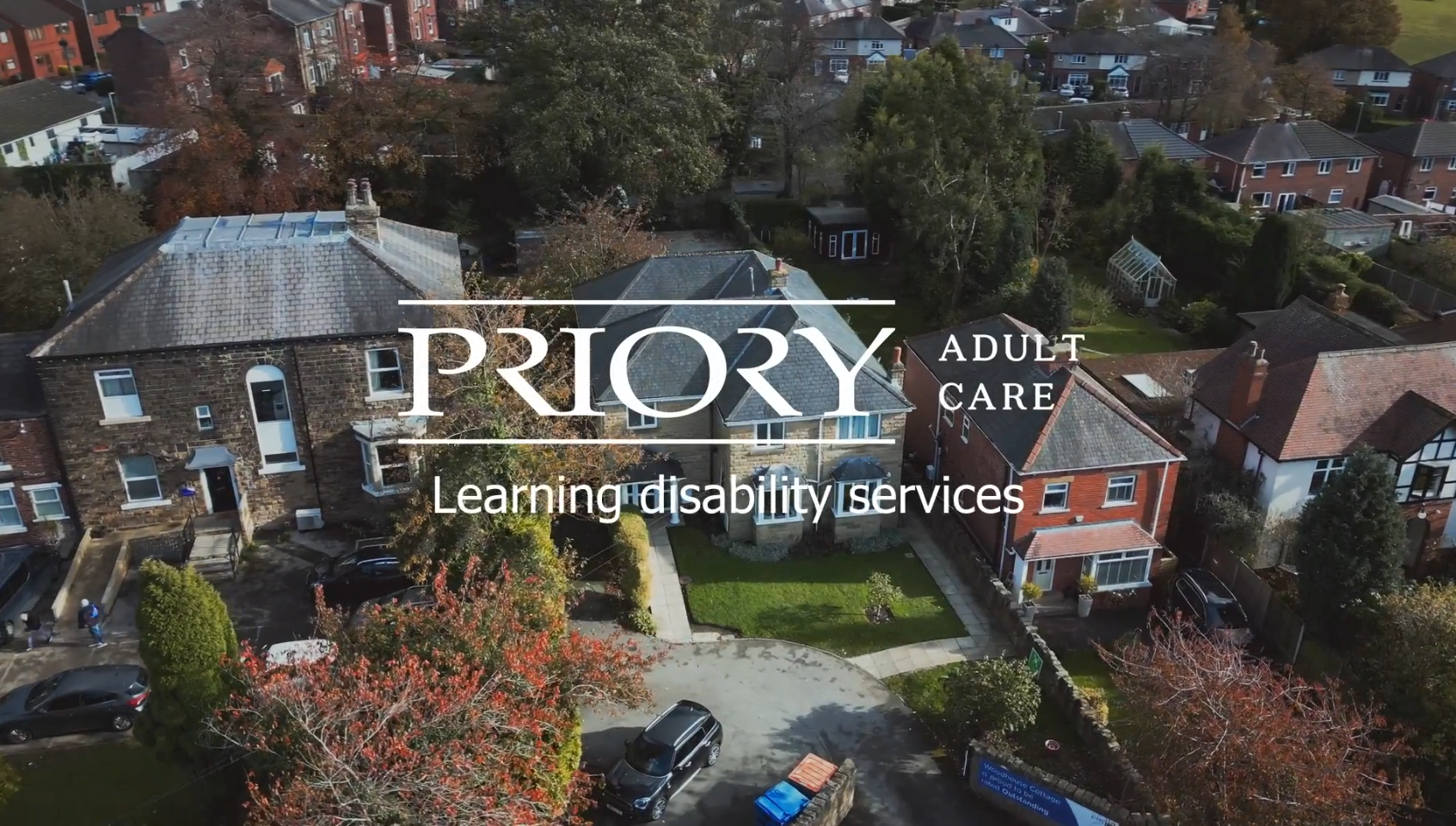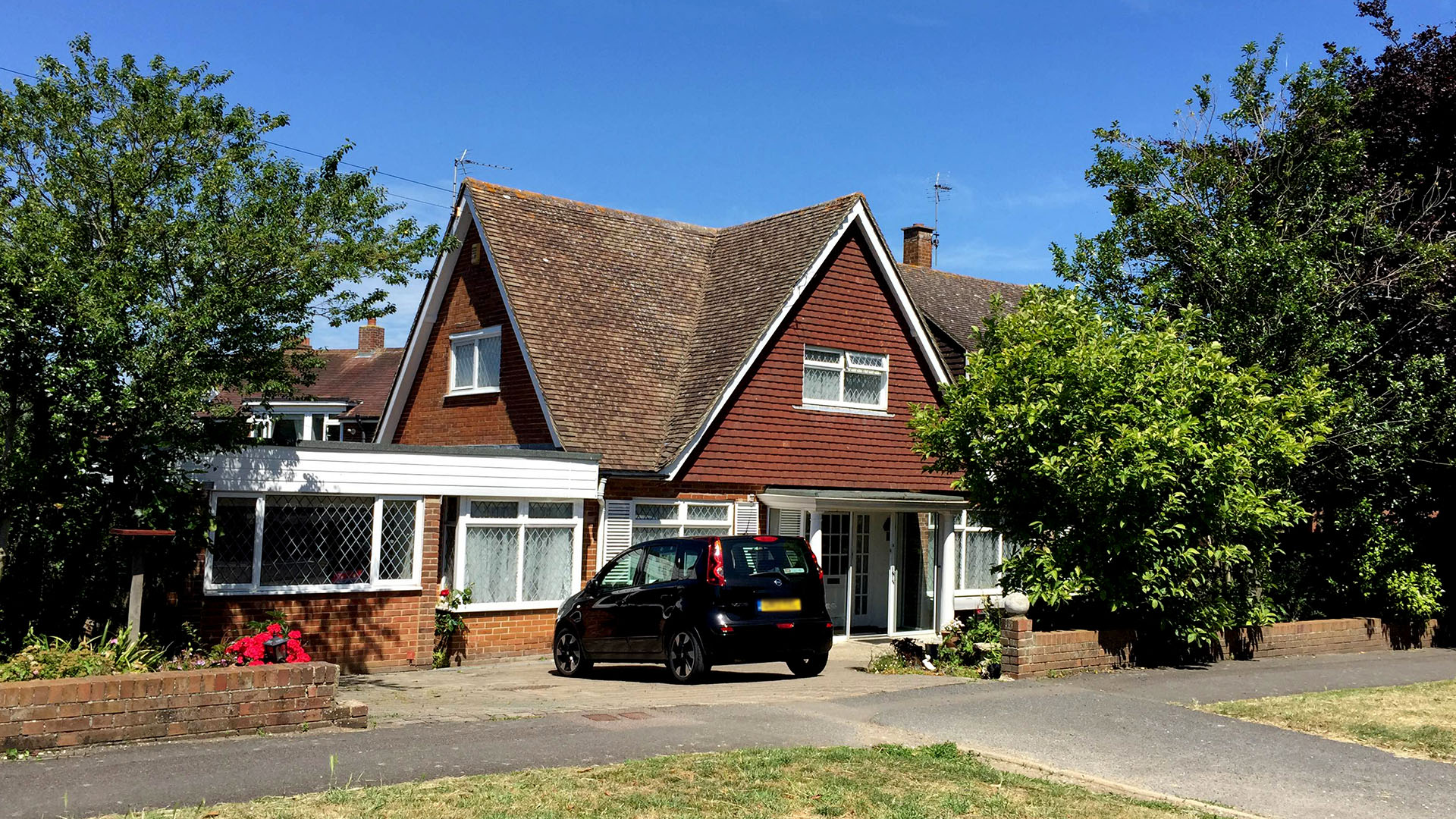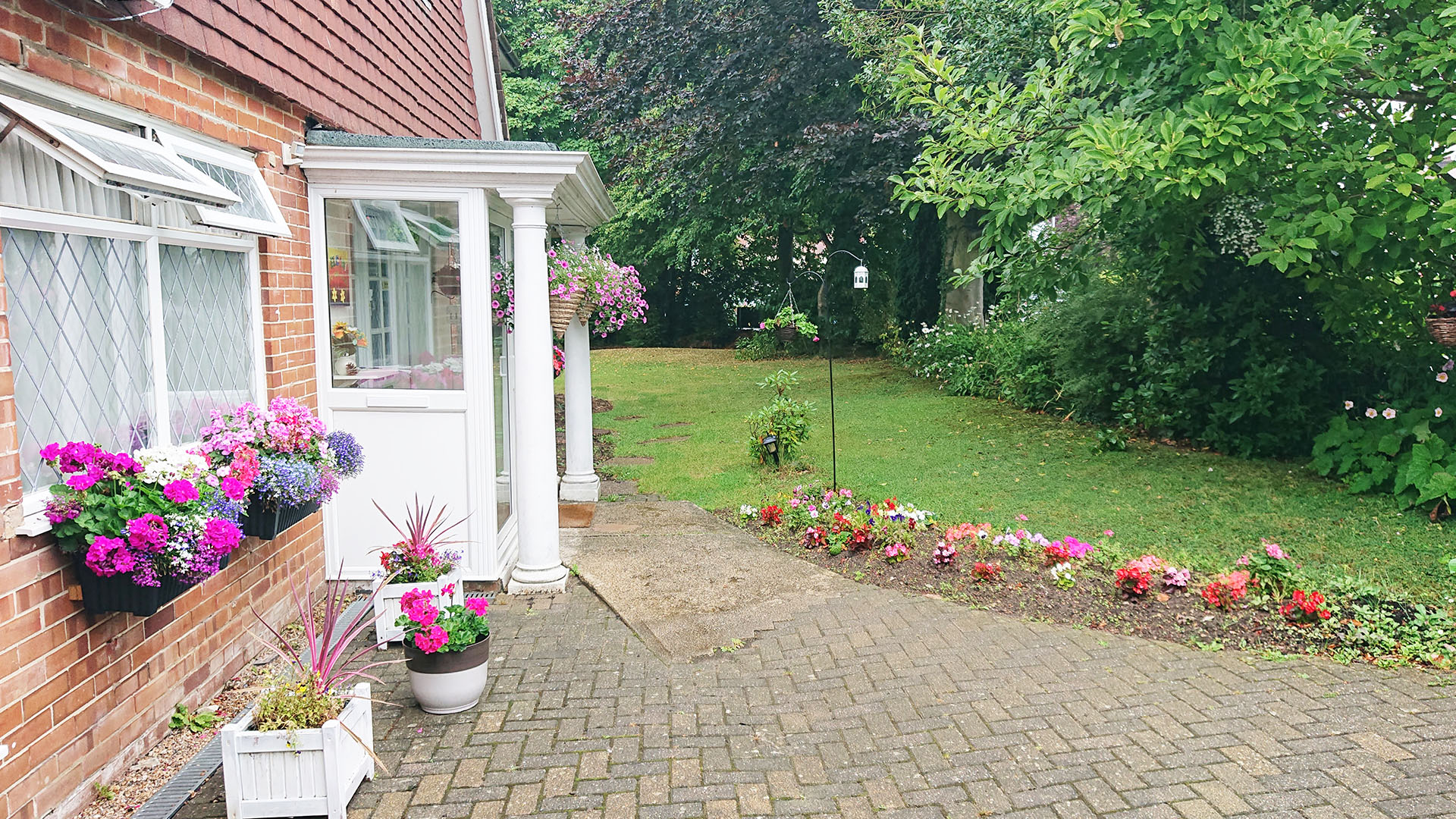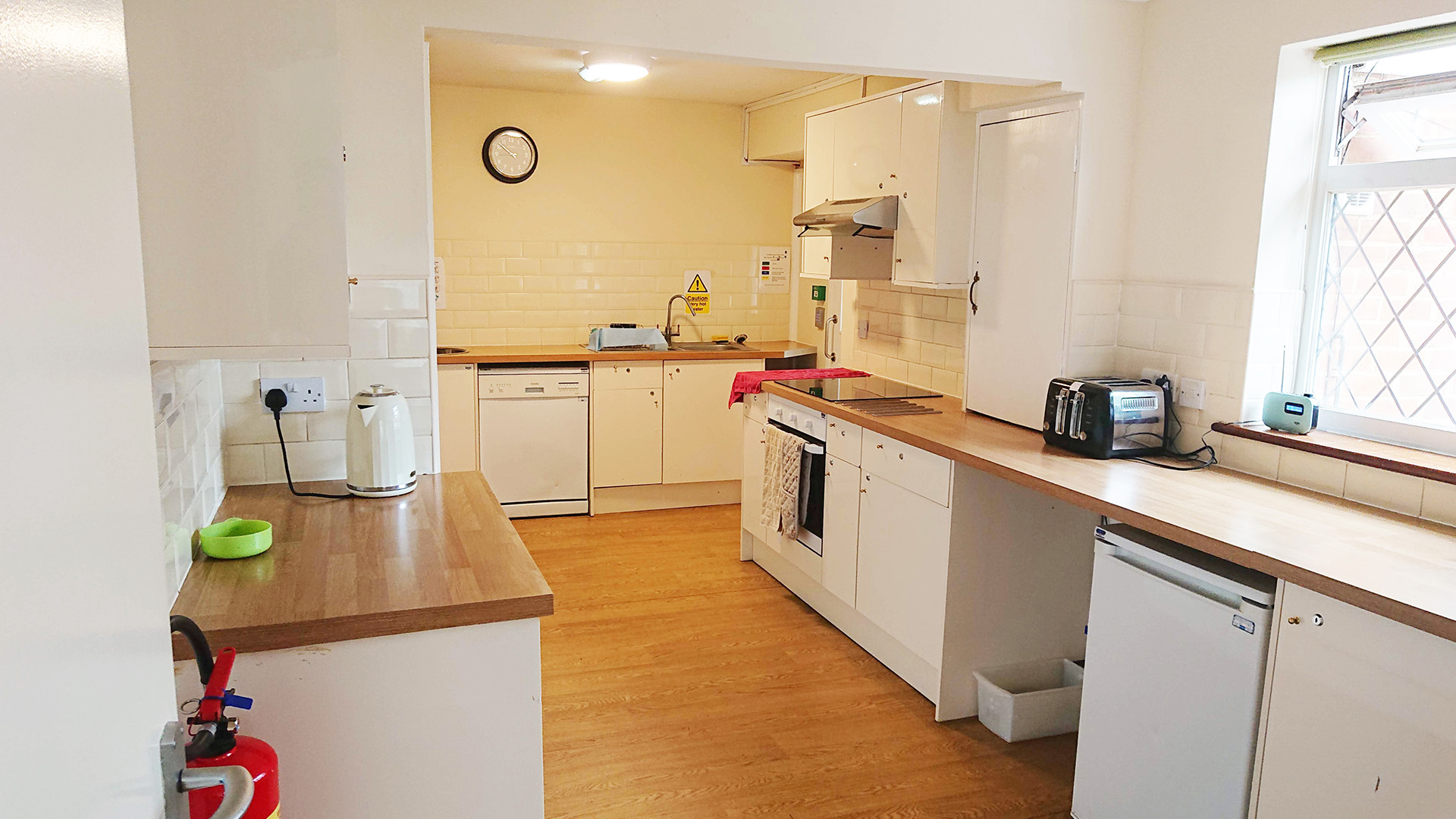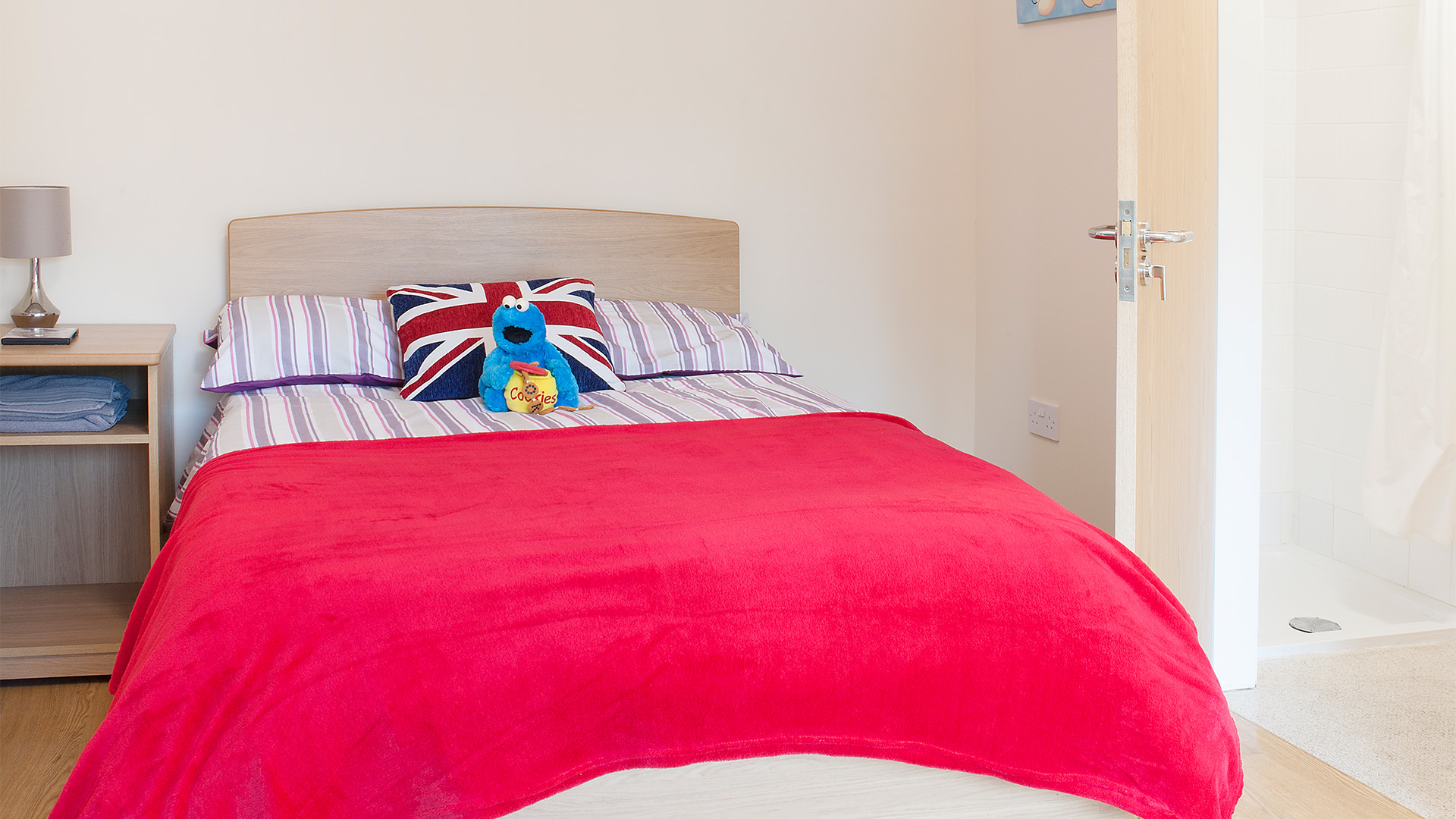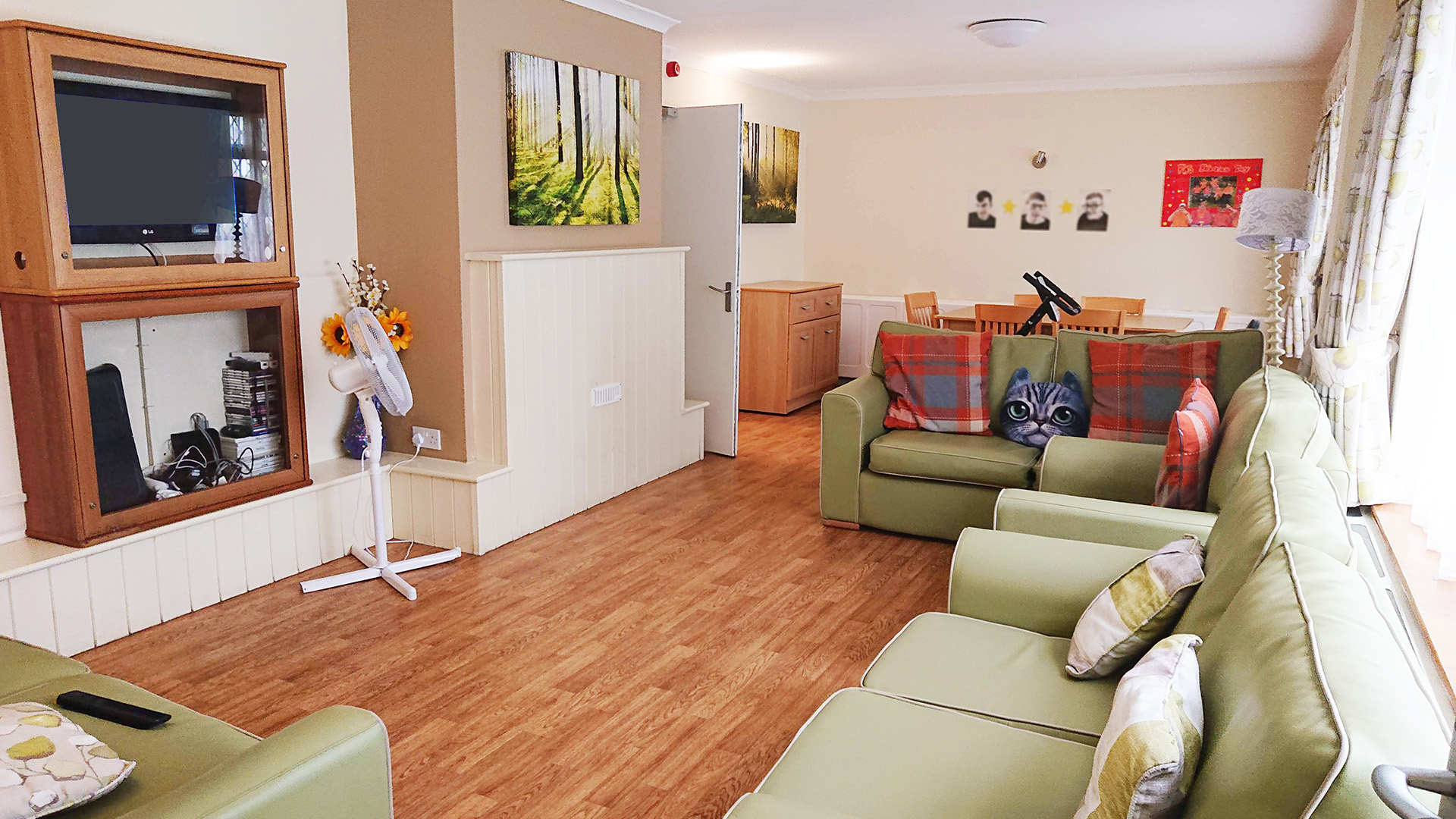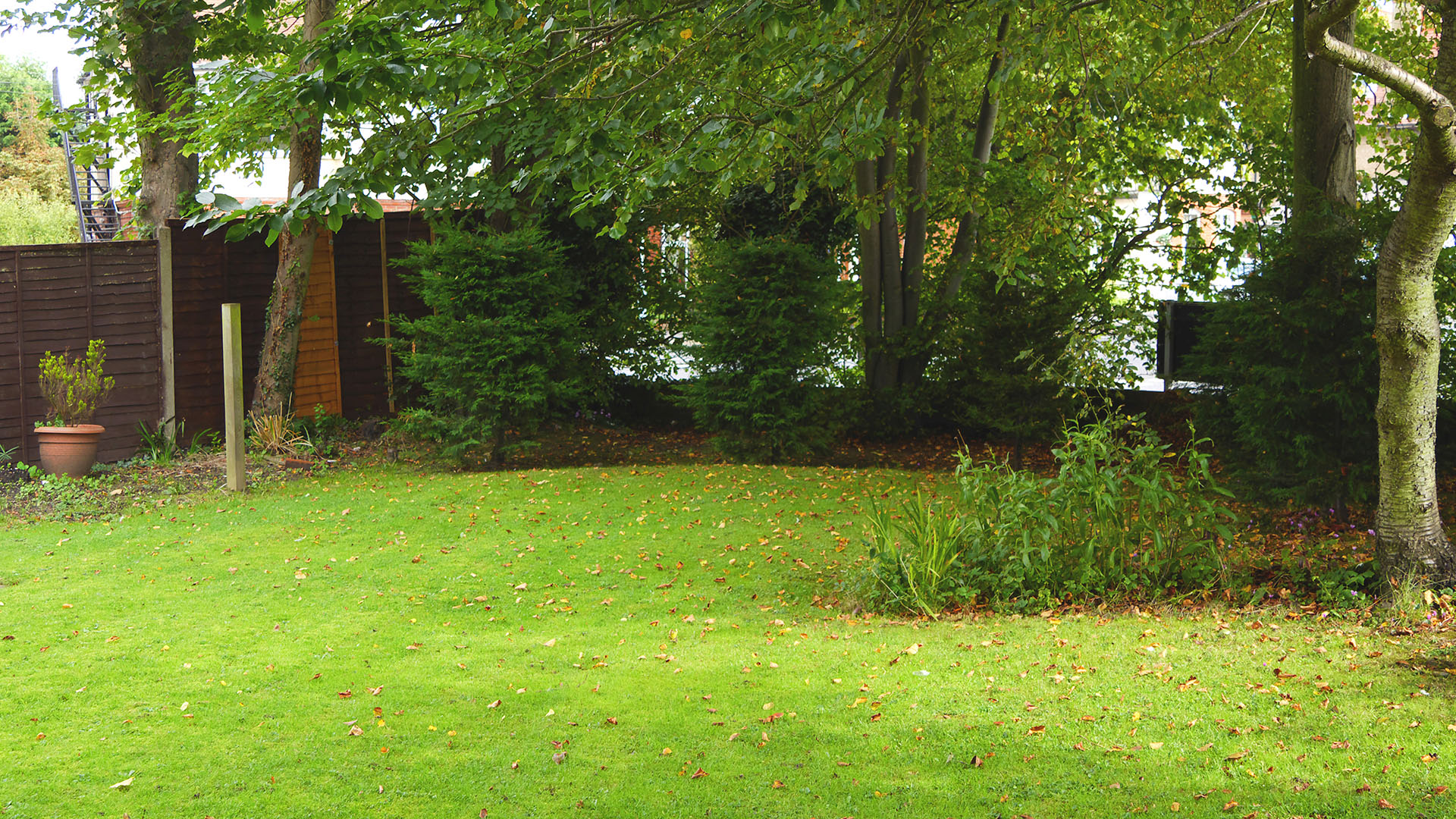About this location
Finn Farm Lodge is a service in Folkestone, in Kent, which provides residential support for five males and females with Prader-Willi syndrome (PWS). The home is located in a tranquil setting on a private housing estate, just a short distance from the town centre and the beach.
Our team are dedicated to supporting the people we care for to maintain a healthy lifestyle and to develop as much independence as they are able to.
We can also support people who are also autistic, and those who may have difficulties with communication.
Services at a glance
Click here to enable this content
About our service
Our facilities and environment
The main detached, communal house has lots of space and offers a relaxed, homely environment.
There are four bedrooms split over two floors. One of the bedrooms is on the ground floor. In addition, Finn Farm Lodge has a self-contained flat on the first floor, which features its own lounge, bedroom and en-suite shower. It also has an activities of daily living (ADL) kitchenette.
We also offer:
- A large lounge with plenty of seating
- Kitchen and dining room
We also have our own garden, complete with:
- Lawn
- Patio
- Communal seating
- Wheelchair access
- Vegetable patch
Our bedrooms
All of our bedrooms are comfortable, welcoming and can be personalised to individual tastes. Our bedrooms have features such as:
- En-suite facilities, containing either a shower or a bath
- Robust, low arousal furniture
- Wheelchair access
- ADL kitchenette
Our approach to support
Everybody who lives at Finn Farm Lodge has their own person-centred care plan, which is co-produced with input from the individual, their family members and professionals involved in their care. We aim to help everyone in our care to make their own choices about the support they receive. This may include support in a number of areas, such as going out in the community, personal care, cooking and cleaning, nutrition, and maintaining family relationships. We also support exercise-based activities which is paramount for individuals with PWS, as they may have low muscle tone.
We also have support from a local multidisciplinary team who offer a range of support, including positive behaviour support (PBS), nursing, psychology input, and psychiatry. In addition, we use tools such as the Outcomes Star™ and Life Star to support our residents to achieve their goals.
The lengths of the placements that we offer at Finn Farm Lodge can be medium or long-term residential, depending on the needs of each person.
Activities
Everyone who lives at Finn Farm Lodge has their own personalised activities planner and are encouraged to take part in activities which are meaningful and fulfilling to them. Our dedicated team organise a variety of activities at the home, as well as out in the community.
We focus on supporting our residents to grow their independence. For some people, this may mean developing their daily living skills within the home. For others, this could be accessing work or educational opportunities in the local community.
Exclusion profile
- Those who do not have PWS
Pathways
Through our network of healthcare, residential and supported living facilities, we provide unique care pathways which help the people we support to progress towards greater independence. Every individual we support is provided with a bespoke pathway plan, tailored according to their individual needs. We aim to ensure that each person is supported to live a fulfilling and active life in the community.
Our team
Our highly experienced team consists of:
- Service manager
- Deputy manager
- Support workers
- Senior support workers
- PBS practitioner
Our team receive specialist staff training, designed to meet the needs of each individual we support. This includes:
- PWS training
- Diabetes management training
- Nutrition and hydration support training
A message from our site leader

We are a small dedicated team who are committed to ensuring all residents experience fulfilled and positive lives, whilst being supported to stay safe and healthy.
Finn Farm Lodge’s site leader
Comments from our residents and their family and friends
Finn Farm is my home, I like my staff team and they help me learn new skills and see new places
Family and friends FAQs
How does home leave work?
We support our residents to attend family events and visit their family homes. We will work with the resident and their relatives to ensure possible risks are managed and that everyone is supported. This may mean the individual’s key worker will come along on the visit.
Can friends and families visit?
Family and friends are welcome to visit. We encourage them to join in our many activities at the home. Visits are usually planned in advance to support individual needs. Unfortunately, family members cannot stay overnight.
Will I be involved and kept up to date with the progress of my loved one’s care and support?
We are committed to keeping families involved in the care of people staying with us. This can involve a variety of different means of communication, including regular catch-ups either in person or via telephone.
Will my loved one be able to have a phone or call me?
We have two incoming phone lines to enable families to keep in touch with residents or for people to be able to call home. There are also cordless phones at various points around the property, which can be used by residents at any time. In addition, we can support our residents to get their own mobile phone, where appropriate.
What are the bedrooms like?
All of the bedrooms within the home are furnished with everything that residents need. Of course, we want them to consider their rooms to be home, and we encourage them to personalise them with their own belongings and décor which is more suited to the own tastes. However, some bedroom furniture may be fitted, and cannot be removed.
Are external doors kept locked?
Our external doors are locked but we have a large garden area and courtyard where individuals can freely exit and enter the building. Every resident will be risk assessed to determine the level of security needed.
What do residents eat and how do meal times work?
Residents are supported to choose and prepare healthy, diverse meals. We know that sometimes people need extra help with problems or concerns around meal times, such as food preparation. We will consider special dietary requirements and seek advice from nutritionists to meet these. Residents are supported with their individual nutritional needs, with their Prader–Willi syndrome support plan and risk assessment.
How does laundry work?
Clean bedding and clothes will be supplied. We have a utility room with laundry facilities, which residents make use of. Many are able to do their laundry on their own but key workers are on hand if support is needed.
Who does the housekeeping and domiciliary tasks?
Many of our residents are tasked with carrying out chores within the home. We have a rota which is developed in our monthly resident meetings. These tasks include chores like cleaning. Any resident who needs support is helped by our staff members.
Is there anything they can’t bring or have?
We would ask that residents do not bring valuables such as family heirlooms to our home, as we cannot guarantee their safety. There are restrictions on some items where the risks cannot be appropriately managed, such as non-approved drugs and medications, solvent-based products and lighters.
How do activities work?
An individually personalised activities planner which includes both in-house activities as well as visits into the community, is developed for every resident staying with us. We are committed to ensuring that they are involved in all aspects of the planning of activities. Those with communication issues are supported by their key worker which use a variety of communication tools.
How will residents be supported with their behavioural needs?
We use the PROACT-SCIPr-UK® framework, which means we focus on proactive strategies, rather than physical intervention. We require our care plans which include restrictions to be assessed frequently, for example procedures for interventions such as pro re nata (PRN) medication are regularly reviewed and removed, where possible. In addition, we have our own PBS practitioner at Finn Farm Lodge to support residents with their behavioural needs.
Do residents and families have an input into the care plans?
Yes, we encourage families and extended support providers, including social workers, to play an active role in the development of the care plans. We are experienced in using a variety of communication tools to work collaboratively with the people we care for. These plans are regularly reviewed and we work with family members closely as we value this important input.
What are the car parking facilities?
There is space for two cars on our site, and free on-street parking.
What is the smoking policy?
Residents can smoke by the designated smoking area in the back garden. We don’t permit smoking inside the building, and this includes vapes. Residents are able to buy cigarettes and vapes at the shops, if this is what they choose.
What are your fees and how are they funded?
Our fees can vary and are based on an assessment of each individual's needs. Many people are eligible for financial help towards the cost of support, and this funding can be accessed by contacting your local authority. Once funding has been agreed, we will work with your local care team to put together a bespoke package of care. Please note, referrals for NHS or Local Authority funded services must come from a referring organisation.
How to make a referral
Our service provides high quality support to people with varying levels of need. Referrals can be made through the individual’s social care team or, if relevant, their local health authority. If you are a professional looking to make a referral, please call us or fill in our enquiry form.


